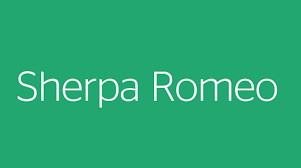Estudio sobre el uso de la gamificación en plataformas de e-learning: teorías de comportamiento, tasas de participación y experiencias de uso
DOI:
https://doi.org/10.36105/stx.2020n5.07Palabras clave:
gamificación, e-learning, teorías del comportamiento, usuariosResumen
Se entiende como gamificación la aplicación de elementos de juegos en ambientes ajenos que no son necesariamente de juegos con el fin objetivo de promover la motivación y participación de los usuarios. En el contexto educativo, se estimula de esa forma el proceso de aprendizaje. El uso de la gamificación en estos entornos podría ser una solución a las bajas tasas de participación y compromiso de los usuarios en plataformas como los mooc. Este análisis tiene la ambición de identificar experiencias de otros investigadores con respecto a la presencia de esta táctica en estos ambientes digitales, a través de una investigación documental y comparativa de acuerdo con sus experiencias, contrastando sus resultados y hallazgos, como también asociando las perspectivas teóricas para la investigación de la gamificación que proponen De Liu, Radhika Santhanam y Jane Webster (2016). El objetivo es discutir la aplicación de elementos de gamificación en entorno al aprendizaje en línea; conceptualizar la dinámica de gamificación, destacar los hallazgos de investigadores en cuanto a esta temática, las perspectivas teóricas de la gamificación y su relación con la motivación y compromiso de usuarios. Como expectativas de resultados, se espera que podamos generar un mejor entendimiento de la literatura sobre el uso de la gamificación, siendo este un mecanismo de disparo de motivación y compromiso de los usuarios en plataformas de e-learning.
Descargas
Referencias
Bonwell, C. C. y Eison, J. A. (1991). Active Learning: Creating Excitement in the Classroom. ASHEERIC.
Higher Education Report, Washington DC: School of Education and Human Development, George Washington University.
Dichev, C. y Dicheva, D. (2017). Gamifying education: what is known, what is believed and what remains uncertain: a critical review. International Journal of Educational Technology in Higher Education.
Dicheva, D., Dichev, C., Agre, G., y Angelova, G. (2015). Gamification in Education: A Systemic Mapping Study. Educational Technology & Society (18), 75-88.
Domínguez, A., De Marcos, L. y Fernández, L. (2013). Gamifying Learning Experiences: Practical Implications and Outcomes. España: Computer Science Department, University of Alcalá.
Francisco, A., González, J., Gutiérrez, F., Isla, J. (2012). Analysis and application of gamification. España: Conference: Proceedings of the 13th International Conference on Interacción Persona-Ordenador.
Prensky, M. (2001). Nativos e Inmigrantes Digitales. Institución Educativa sek.
Glee, J.P. (2013). What Video Games Have to Teach Us About Learning and Literacy.
García, S., Idrissi, M., Ortega, A. y Gómez, E. (2018). RIED. Uso de la colaboración y la gamificación en MOOC: un análisis exploratorio. Revista Iberoamericana de Educación a Distancia. http://dx.doi.org/10.5944/ried.21.2.20410
Huang, B. y Hew, K. (2016). Measuring Learners’ Motivation Level in Massive Open Online Courses.
Hanus, F. (2015). Assessing the effects of gamification in the classroom: A longitudinal study on intrinsic motivation, social comparison, satisfaction, effort, and academic performance. International Journal of Information and Education Technology.
Hamari, J., Koivisto, J., y Sarsa, H. (2014). Does Gamification Work? - A Literature Review of Emperical Studies on Gamification. 47th Hawaii International Conference on System Science, 3025-3034.
Kapp, K. (2012). The Gamification of Learning and Instruction: game-based methods and strategies for training and education. San Francisco: Pfeiffer.
Ibanez, D. y Delgado, K. (2014). Gamification for Engaging Computer Science Students in Learning Activities: A Case Study. Estados Unidos: IEEE Transactions on Learning Technologies, 7(3), 291-301.
Ortega, A., Er, E., Martínez, A., Bote, M.L., Asensio, J.I. y Muñoz, J.A. (2019). Understanding student behavior and perceptions toward earning badges in a gamified MOOC. Universal Access in the Information Society.
Nicholson, S. (2012). A User-Centered Theoretical Framework for Meaningful Gamification. Paper Presented at Games+Learning+Society 8.0, Madison, WI.
Raed, A. (2018). Do points, badges and leaderboard increase learning and activity: A quasi-experiment on the effects of gamification.
Raed, A. (2017). The Effect of Gamification on Motivation and Engagement. ResearchGate.
Recuperado de https://staff.acu.edu.au/-/media/staff-site-rte-docs-only/leo-guides/documents/icce_2015_paper_gamification.pdf?la=en&hash=96D3E5E90A17B9F6B3F71798E-5148DA2
Liu, D., Santhanam, R., y Webster, J. (2017). Toward Meaningful engagement: a framework for design and research of gamified information systems. Estados Unidos: University of Minnesota. Information and Decision Sciences.
Torres, A., Romero, L., Pérez, M. Staffan, B. (2018). Modelo Teórico Integrado de Gamificación en Ambientes E-Learning (e-miga). Revista Complutense de Educación.
Tlili, A. y Chang. M. (2019). Data Analytics Approaches in Educational Games and Gamification Systems. Smart Computing and Intelligence. Singapur: Springer.
Alsawaier, R. (2018). The effect of gamification on motivation and engagement. The International Journal of Information and Learning Technology, 35(1), 56-79.
Seaborn, K. y Fels, D. (2015). Gamification in theory and action: A survey. International Journal of Human-Computer Studies, (74), 14-31. http://dx.doi.org/10.1016/j.ijhcs.2014.09.006
Shah, D. (2018). By The Numbers: moocs in 2018. Disclosure: Class Central is learner-supported. When you buy through links on our site, we may earn an affiliate commission.
Recuperado de https://www.classcentral.com/report/mooc-stats-2018/

Publicado
Número
Sección
Licencia
Sintaxis. Revista científica del Centro de Investigación para la Comunicación Aplicada© se distribuye bajo una Licencia Creative Commons Atribución-NoComercial-SinDerivadas 4.0 Internacional.
El autor conserva los derechos patrimoniales sin restricciones y garantiza a la revista el derecho de ser la primera publicación del trabajo. El autor es libre de publicar en cualquier otro medio su artículo, como un repositorio institucional.
















